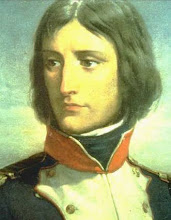An interview is a face-to-face meeting, especially for the purposed of assessing the candidate for the job applied for. It aims at evaluating your academic knowledge, awareness or current topics, communication skills, the clarity of thought and expression and sense of balance, and ability to extricate you from tricky situation.
SSB's: One of the most fundamental factors that contribute to the successful interview is the time and quality of preparation made by. Normally the President/ Vice President of the Services Selection Board will conduct the personal Interview. They are very senior Officer from the Armed forces. Degree of preparedness for an interview helps reduce the uncertain anxiety prior to the Interview.. The amount of effort you wish to put into preparation is directly proportional to your out put at the interview. How to plan your preparation? Preparation develops Confidence and gears you for the anticipated grilling. Prepare the following:
How to Tackle?
Write down in a neat and legible handwriting the PIQ form given to you (Please copy it down it is given in this CD). Try to put down everything in an orderly and crisp manner. Revise your Bio-data thoroughly. Try to form your own questions based on it. Answer them to your full satisfaction. Check your Bio-Date for grammatical and spelling error. Remember discerning interviewer expects Zero error in the Bio-Data. Try and collect as much information about the City in which you live, your School, College, place of interview and places you have visited. Be sure regarding your hobbies. For example, if you have written reading as a hobby, be sure about what you have been reading. Interviewer expects a serious reply. He expects the names of the authors and then will ask questions based on their themes. A serious reader will score over others who refer cheap detective, thriller novels. The logic holds good for any other hobby you have mentioned in your PIQ. Be clear of your favorite subject and area of you interest in the subject, which you are/have specialized.
Refresh your knowledge. Then interviewer might ask you a few technical questions. A well-groomed look gives an image of thoroughness and professional look. Your achievements should be brought out in a systematic order as and when you are asked about it. Follow the normal etiquette for the interview, Wait for the officer to speak first- Listen carefully before you speak. Take a few long breaths this will calm down your nerves, after listening to the question carefully, clarify your doubts if any, before you answer the question. Think well before you answer. For more questions will follow your answers.

